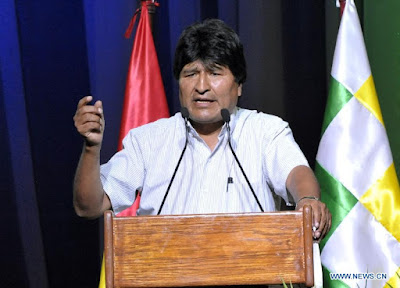Mensahi Ginen i Gehilo' #13: The End of the End of History

After the Cold War ended, conservative philosopher/political theorist Francis Fukuyama penned an argument about "the End of History." His basic thoughts boiled down to the idea that with the United States victorious in the Cold War, and with Communism and Marxist thought and governments disappearing, the dialectics of history were over. The United States would never have another worthy antagonist, who could challenge it, and that liberal democratic capitalistic ideas would become the norm and nothing viable could ever appear again beyond it. There are many ways that we can see some truth to this argument. Very few people would ever openly argue nowadays that democracy isn’t the best possible for of political government. Capitalism appears to be the happy norm, after all, who could openly argue against the making of money and spreading of wealth? Whereas technology seems to constantly shifting and changing, making previously unthinkable things feel very



